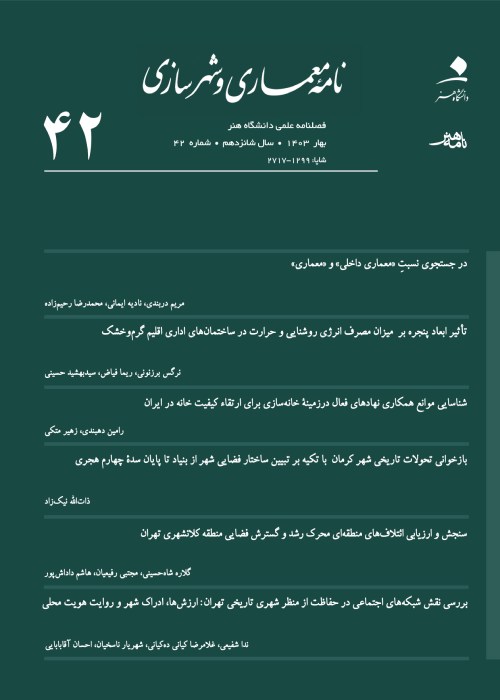The Principles and Concepts of Sustainable Urban Development from Viewpoint of a Phenomenological Approach
In spite of the improvements of methods, equipment, techniques and urban planning and designing processes in the 20th century, contemporary urban planning in the beginning of the 21st century is facing new challenges. This is because of the wide range of issues to be solved in one side and the need of radical changes in the ways of observing and facing these issues from the other side. New urban planning approaches, like “community planning” and “non-Euclidian mode of planning” besides most recent theories such as “critical theory”, “phenomenology”, “ethical theory” and “sustainable development” all show the importance and the need of a new attitude towards the world, human beings, environments and ultimately architecture and urban planning. In spite of the differences in principles and methods, issues such as morals versus the profits, community versus individuality and quality versus quantity, are the common principles among all the aforesaid theories. Therefore, it seems that achievement of sustainable development of cities acquires a change in content and procedure in contemporary urban planning. This paper tries to analyze the principles and concepts of urban sustainable development from viewpoint of a phenomenological approach. Therefore by applying adescriptive/analytic method, and with the use of “library studies” the basic principles of sustainable development are studied by the basic phenomenological principles such as “return to the things themselves”, “dwelling”, “lived space”, “sense of place”, “meaning” and so on. One of the most important results of this study can be the need and importance of paying attention to human existence/life as a labyrinth, elegant and complicated network of real and symbolic relations and knowing this relation network by: leaning toward qualitative and quantitative paradigms, avoiding using space only as geometrical space, resisting against optimization, considering desirability, humanity and control of small and concentrated cities instead of sprawl growth, improving “decision making” methods in different levels of urban planning by considering human and environment in dialectic manner and legitimacy of people participation in preparing and implementation of urban plans. According to these explanations, achievement of many principles of sustainable urban development such as making neighborhoods that encourage public life, applying native patterns consistent with climate, considering a rational limit of population and building density, designing based on pedestrian and public transportation, improvement of community relationships and avoiding making social ghettos would be possible only if there is a qualitative and in-depth recognition of the environment.
- حق عضویت دریافتی صرف حمایت از نشریات عضو و نگهداری، تکمیل و توسعه مگیران میشود.
- پرداخت حق اشتراک و دانلود مقالات اجازه بازنشر آن در سایر رسانههای چاپی و دیجیتال را به کاربر نمیدهد.



